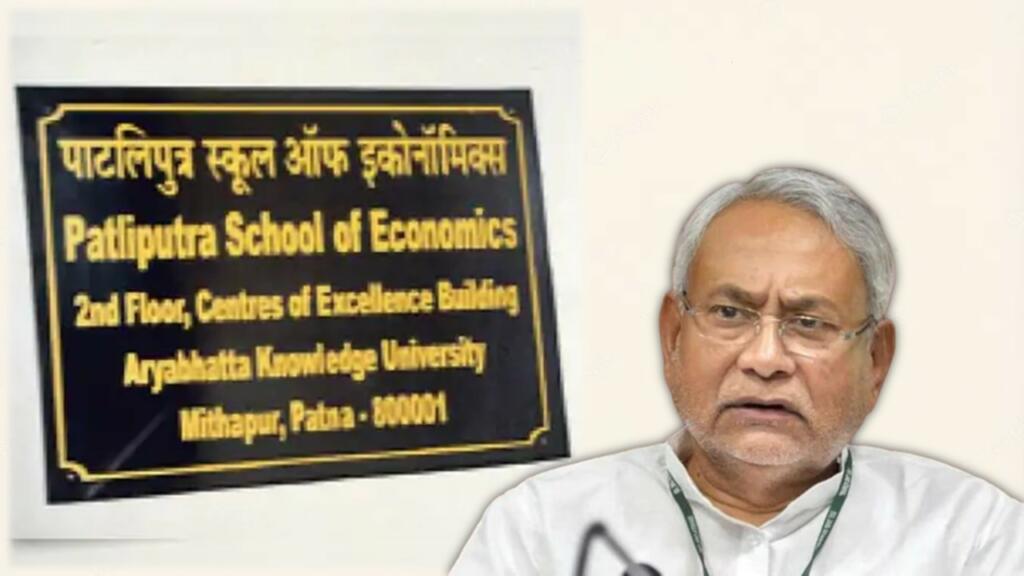Patliputra School of Economics: Nitish Kumar, a figure entrenched in the realm of politics, seems to have an uncanny knack for orchestrating a series of failures that continue to astonish observers. In a peculiar manner, he embodies the saying, “Jack of all Trades, Master of None,” as his endeavors across various domains struggle to yield the desired results.
In his most recent escapade, the spotlight shines on yet another disappointment linked to one of his cherished projects. Interestingly, this doesn’t pertain to the much-discussed I.N.D.I.A alliance, which has garnered its share of attention. Instead, it pertains to the closure of one of his pet projects, and the story is far from inspiring.
The Patliputra School of Economics, envisioned as a parallel to the prestigious London School of Economics, has witnessed a rather peculiar journey in its six years of existence. Contrary to expectations, not a single student has enrolled in the institution during this time. The brainchild of Nitish Kumar, this project aimed to foster a center of academic excellence, yet it stands devoid of the very essence that defines an educational institution – its students.
Currently, the Patliputra School of Economics finds itself in a temporary state of closure, which could very well evolve into a permanent shutdown. This dire predicament raises significant questions about the institute’s authenticity and underlying purpose. Was this a noble initiative that somehow went astray due to unforeseen circumstances, or does it bear the hallmarks of a misguided venture, akin to the enigmatic ghost city of Lavasa?
Also read: Why Nitish Kumar will dump the I.N.D.I.A. alliance
The saga of failure not only revolves around the dearth of students but also extends to the allocation of resources for the appointment of teachers. The sudden shutdown casts a shadow of doubt over the true intentions behind the institute’s establishment. Were the grants and appointments mere facade, or did they genuinely hold the potential to uplift the academic landscape? These questions, unfortunately, join the growing list of mysteries surrounding Nitish Kumar’s endeavors.
The Patliputra School of Economics, in its current state of limbo, serves as a microcosm of Nitish Kumar’s larger journey marked by mixed successes and perplexing failures. From the realm of politics to the realm of education, his forays seem to echo the sentiment of the “Jack of all Trades” archetype. Each endeavor showcases a zeal to diversify and innovate, yet the absence of mastery raises doubts about the strategic execution and in-depth planning that underpin his initiatives.
As this chapter unfolds, observers are left to ponder the lessons that emerge from Nitish Kumar’s multifaceted undertakings. The tale of the Patliputra School of Economics serves as a stark reminder that even the most well-intentioned projects can falter without a robust foundation and a clear roadmap. It prompts us to question whether the pursuit of diverse ventures sometimes overshadows the need for mastery in a particular domain.
Ultimately, the chronicles of Nitish Kumar’s ambitious endeavors serve as a tapestry of successes and failures, woven with good intentions yet colored with a recurring theme of unrealized potential. The closure of the Patliputra School of Economics serves as a testament to the complexities of translating vision into reality, leaving us to reflect on the balance between diversification and mastery in any pursuit.
Support TFI:
Support us to strengthen the ‘Right’ ideology of cultural nationalism by purchasing the best quality garments from TFI-STORE.COM
